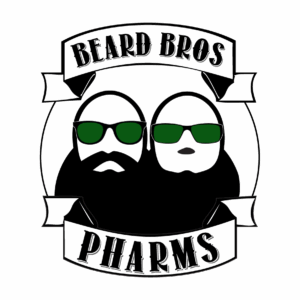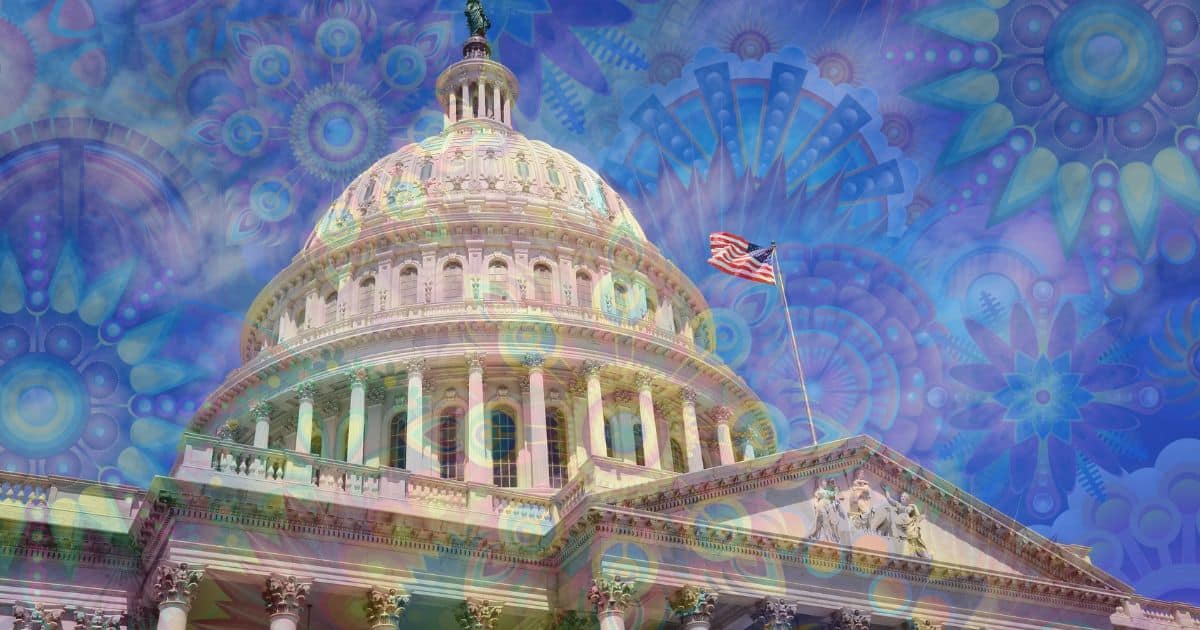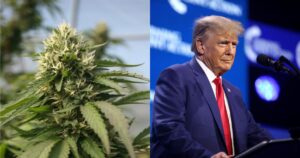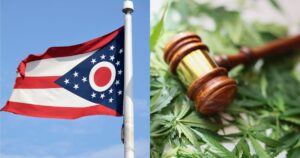The narrative on psychedelics has been changing rapidly over the past few years in Washington D.C., with politicians from both sides of the aisle now supporting trials involving psychedelic treatments for mental health conditions like PTSD and depression. This is a marked shift from how these substances have been viewed in the past, with psychedelics still associated with counterculture and largely illegal for recreational use.
It’s a remarkable turnaround and speaks volumes about how much the federal government has shifted its stance on psychedelics in recent years. Today, we can see that progress made by veterans who have devoted their time to advocating for more research into psychedelics for therapeutic use.
History of Psychedelic Use in the U.S.
Psychedelics have a long and complicated history in the United States. A popular recreational drug during the 1960s counterculture movement, psychedelics such as LSD (lysergic acid diethylamide) were made illegal in 1970 by the Controlled Substances Act. Although research into psychedelic drugs continued for medical use, it was stopped mainly due to fear of association with the recreational use of psychedelics and their perceived risks.
However, in recent decades, there has been a resurgence of interest in psychedelic research for therapeutic and medical purposes. This renewed interest has led to further exploration of these drugs’ potential benefits for people suffering from mental health issues such as depression, anxiety, and PTSD. This new wave of research has transformed the public’s perception of psychedelics, and as a result, the federal government has begun to recognize their therapeutic potential. The shift in stance is largely attributed to veterans who have devoted themselves to advocating for greater research into psychedelic treatments.
About Face on Psychedelics in D.C
Washington, D.C. has seen a wave of bipartisan support for psychedelics research and therapeutic use in recent years. Both Democrats and Republicans have been vocal proponents of furthering the understanding of these drugs’ therapeutic potential and protecting access to them for those who need it most.
In 2019, two members of Congress—Reps. Alexandria Ocasio-Cortez (D-NY) and Dan Crenshaw (R-TX)—sponsored amendments to the 2023 Fiscal Year National Defense Authorization Act (NDAA) that would require the Department of Defense (DOD) to study the therapeutic potential of psilocybin and MDMA as alternatives to opioids in the treatment of PTSD and traumatic brain injuries.
In January 2021, a coalition of congressional lawmakers—led by Rep. Earl Blumenauer (D-OR) and including both Democrats and Republicans—sent a letter to the Drug Enforcement Administration (DEA) imploring the agency to allow terminally ill patients to access psilocybin as an investigational drug pursuant to federal “Right to Try” statute.
In the same month, a bipartisan coalition of House members, including Reps. Madeleine Dean (D-PA), Brian Fitzpatrick (R-PA), Dean Phillips (D-MN), and Michael Waltz (R-FL) sent a letter to the head of the U.S. Department of Health and Human Services urging him to establish an “interagency task force on the proper use and deployment of psychedelic medicine and therapy.”
Psychedelic Reform Spearheaded By Veterans
Veterans have been at the forefront of the effort to reform psychedelics policies in Washington, D.C., and other parts of the country. Many veterans suffer from post-traumatic stress disorder (PTSD) and other mental health issues and are looking for alternative treatments that don’t involve opioids or other traditional medications.
These veterans have seen first-hand the potential psychedelics have for treating various mental health issues and are advocating for further research into these substances as a possible therapeutic option. Their advocacy has helped to bring attention to the psychedelic movement and create a more open dialogue around its potential benefits.
“The results that are coming out are just groundbreaking — earth-shattering,” said Rep. Morgan Luttrell (R-Texas), a former Navy SEAL who credits therapy and two psychedelics, ibogaine, and 5-MeO-DMT, with helping him overcome the trauma he suffered after his Black Hawk helicopter went down during a 2009 training mission. “D.C. actually is getting their head around it.”
Luttrell was reluctant at first to try ibogaine, an extract from an African root, and 5-MeO-DMT, derived from desert toads, that like other psychedelics change a user’s perception of reality. “I’m a very anti-drug guy,” he told POLITICO. But ultimately, he traveled to Mexico’s Baja California coast to use the drugs, because they’re illegal in the U.S. He said it saved his marriage.
In addition to advocating for reform through policy and legislation, veterans have been using their personal experiences to help destigmatize psychedelics. Their stories have been essential to changing public opinion on psychedelics and helping more people understand the potential benefits these drugs could offer for mental health issues.
Veterans’ efforts in Washington D.C. and elsewhere are slowly but surely bringing about much-needed reform for psychedelics. As more information becomes available, the tide will likely favor psychedelics and their potential therapeutic benefits.
The fact that the U.S. government is openly advocating for further research into psychedelics and their potential therapeutic benefits is a remarkable turnaround from just a few years ago. This shift can largely be attributed to the efforts of veterans who have seen first-hand the potential these substances have to help treat mental health issues, as well as advocacy groups who are pushing for more research and access to these drugs.
Looking ahead, there’s a lot of potential for psychedelics to help millions of people who suffer from mental health issues like PTSD, depression, anxiety, and more. As our understanding of these substances evolves and the research continues, we’ll likely continue to see progress in terms of both public perception and policy reform.
It’s clear that the psychedelics train is gaining momentum. With continued support from veterans, advocacy groups, and their allies in Congress, it shows no sign of slowing down anytime soon. It’s an exciting time for the psychedelic movement—and for those looking for an alternative to traditional treatments—as we explore the true potential of psychedelics to help those who suffer from various mental health issues.
Enjoyed that first hit? Come chill with us every week at the Friday Sesh for a freshly packed bowl of the week’s best cannabis news!
- Maryland Leads the Way in Cannabis Pardons, Setting an Example for Much-Needed Cannabis Reform
- Military Construction and Veterans Affairs Bill Amendments Could Change Medical Marijuana and MDMA-Assisted Therapy Options for Veterans
- Thailand’s U-Turn on Recreational Cannabis Use
- Chicago Police Department Revises Policy on Searches Based Solely on Marijuana Odor
- Ohio’s Senate Bill 56 Postponed, Leaving Details of Issue 2 Still Unresolved
- Sports Stars and Well Known Entertainers Join Forces Calling on Trump for Cannabis Reform













